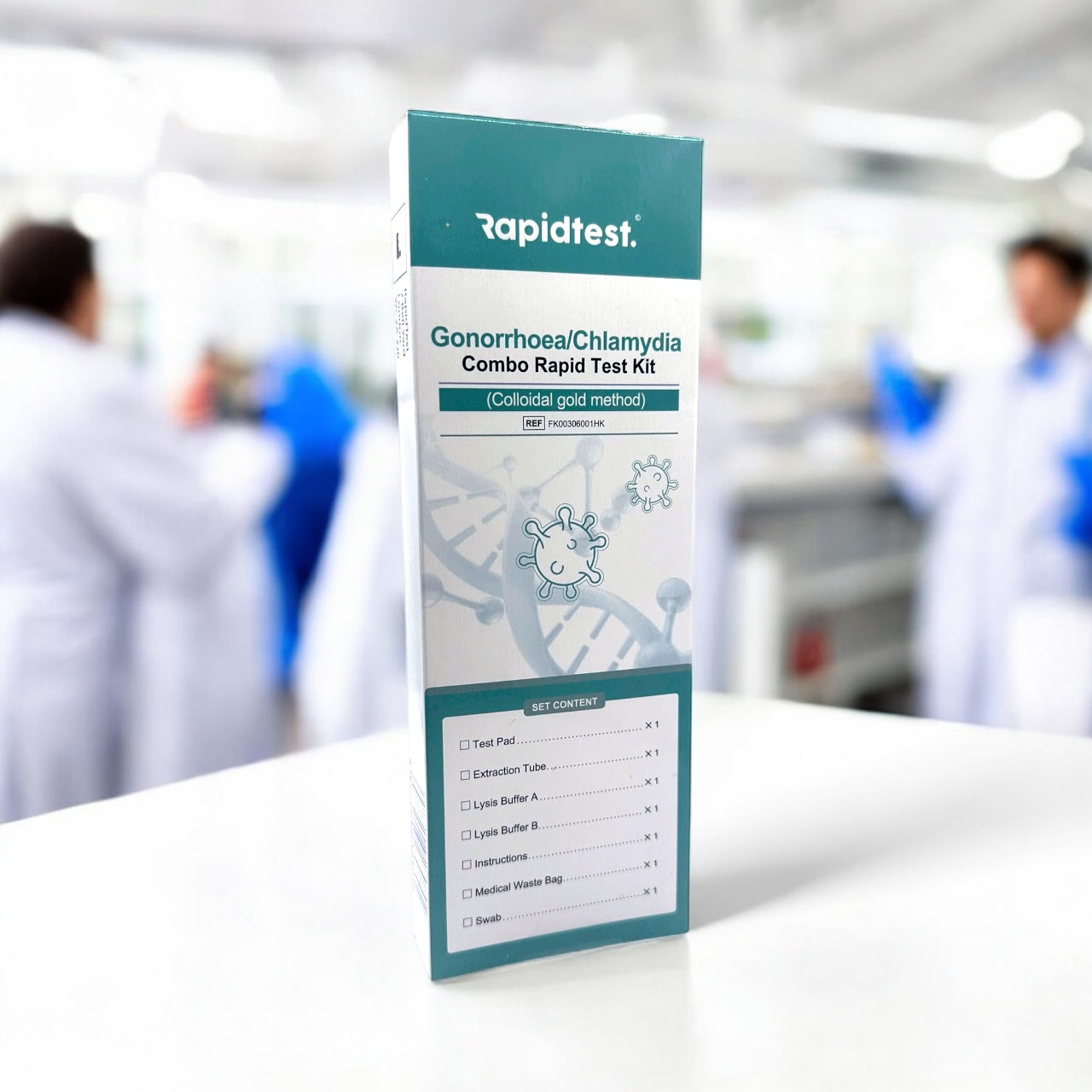
💞 How to Test Fertility at Home: A Guide for Couples Trying to Conceive
Share
Overview
Trying for a baby can be one of the most exciting—and sometimes stressful—journeys a couple takes together. Understanding fertility from both sides helps make the process more predictable, less emotional, and far more empowering.
Modern fertility tests make it possible to check fertility at home with fast, accurate results that reveal how your body is functioning—without doctor appointments or lab visits.
At RapidTest.co, we offer three key at-home fertility tests designed to give both men and women the information they need: the SP-10 Male Fertility Test, LH Ovulation Test, and HCG Pregnancy Test. When used together—or as part of our Couples Fertility Bundle—they create a clear picture of your shared fertility health.
Male Fertility: The SP-10 Test
When trying to conceive, it’s easy to assume fertility issues are female-related—but male factors account for around 40–50% of infertility cases.
The SP-10 Male Fertility Test measures the concentration of a sperm-specific protein (SP-10), which correlates with sperm count. A healthy sperm concentration suggests that fertility potential is within the normal range.
How it works: collect a semen sample, add it to the provided solution, and place drops into the cassette. Results appear within 15 minutes—one line indicates low sperm concentration, two lines indicate a normal (fertile-range) concentration.
If your result suggests a lower sperm concentration, it doesn’t mean conception is impossible—repeat the test after a few weeks and speak to a healthcare professional if results stay low.
Female Fertility: The LH Ovulation Test
For women, fertility depends on timing ovulation accurately. The LH Ovulation Test detects a surge in luteinising hormone—the signal your body gives 24–36 hours before ovulation. That’s your most fertile window.
How it works: use daily LH tests around the middle of your cycle. Dip the strip in urine for a few seconds, wait 5 minutes, then read your result: two lines mean an LH surge (ovulation is imminent), one line means no surge.
Tracking this across cycles helps you map your personal fertility rhythm and increases your chance of conception.
Confirming Conception: The HCG Pregnancy Test
Once ovulation has occurred and fertilisation is possible, the HCG Pregnancy Test confirms whether implantation has taken place by detecting human chorionic gonadotropin (hCG) in urine.
The test can confirm pregnancy from the first day of a missed period with over 99% accuracy. If you test too early and get a negative result, repeat the test after 48 hours for confirmation.
Why Couples Should Test Together
Fertility is a shared journey. Testing together saves time and uncertainty—and helps both partners feel equally involved and informed. The Couples Fertility Bundle combines all three essentials: SP-10 for him, LH ovulation strips for her, and HCG tests for early confirmation—creating a complete, private, and affordable at-home solution.
When and How Often to Test
| Test Type | When to Test | Why It Matters |
|---|---|---|
| SP-10 (Male) | Any time | Establishes a baseline for sperm health. Retest every 2–3 months or before conception planning. |
| LH Ovulation Test (Female) | Mid-cycle | Detects the LH surge to identify the most fertile days for conception. |
| HCG Pregnancy Test | From first missed period | Confirms conception early with over 99% accuracy. Repeat after 48 hours if unsure. |
Accuracy and Trust
All RapidTest.co fertility kits are CE-marked for home use and manufactured in ISO-13485 certified facilities.
- SP-10: ~95% accuracy
- LH Ovulation: ~98% accuracy
- HCG Pregnancy: ~99% accuracy
Orders are shipped in plain, unbranded packaging for complete privacy. About our test accuracy standards
FAQs
How can I check fertility at home?
Use RapidTest.co’s at-home fertility tests—SP-10 for sperm concentration, LH for ovulation tracking, and HCG for pregnancy confirmation.
How soon should we start fertility testing as a couple?
You can begin anytime. If you’ve been trying to conceive for six months or longer, testing helps identify next steps.
Are at-home fertility tests reliable?
Yes. Our CE-certified kits are more than 95% accurate when used correctly.
Can any of the tests be reused?
No—each kit is single-use for hygiene and accuracy.
Do fertility tests replace a doctor’s visit?
They provide valuable insight but don’t replace professional advice. If results remain unclear or conception doesn’t occur, speak to your GP or fertility specialist.

